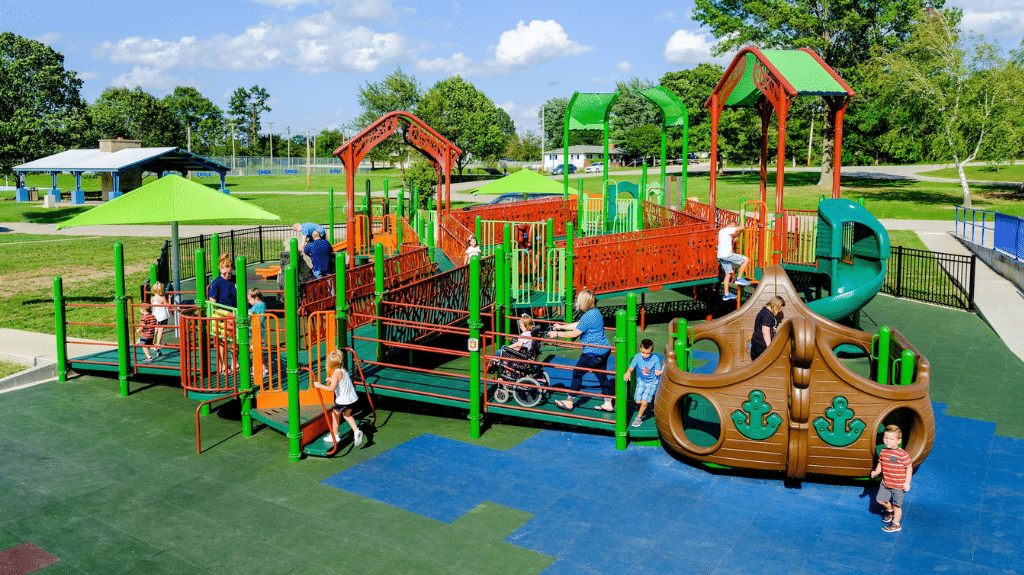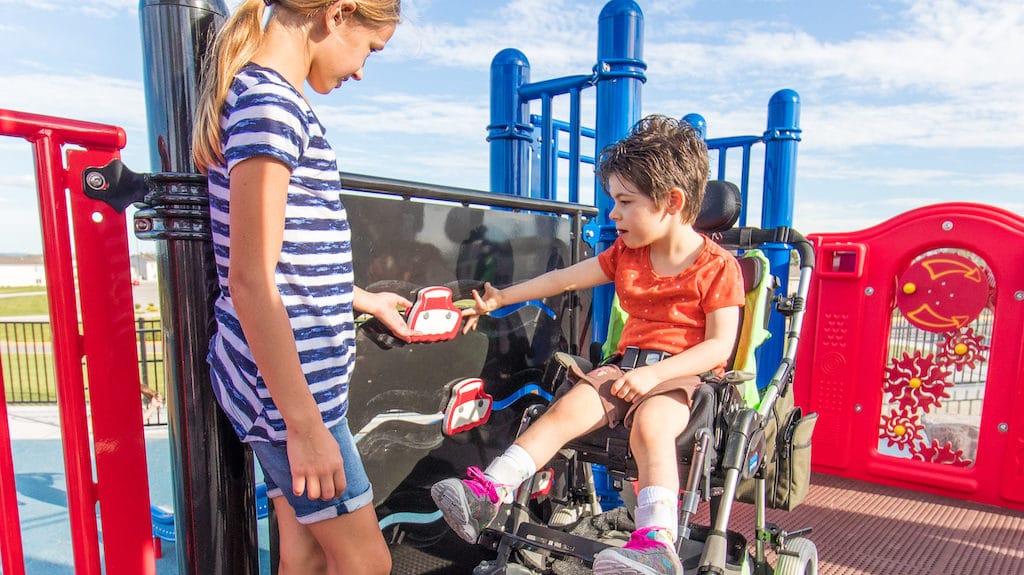Tips for Traveling with Toddlers and Children

Family trips are a great way to bond and create lifelong memories with your children. But some days, just going to the grocery store without a temper tantrum or unexpected potty break can feel like “Mission: Impossible.” If the thought of traveling with your kids is too stressful, you may avoid it entirely – but there are several important reasons to try stepping out of your comfort zone.
Whether you’re visiting the next town over or going overseas, a family vacation can help your child learn about and explore the world around them. For parents of toddlers or children with special needs, this type of sensory activation is particularly important. And with a little preparation (and a lot of patience!) travel can be an exciting part of your child’s life!
Think about the diligence it takes to pack diaper bags and backpacks, just to go to school or daycare in the morning. Your family’s daily life already consists of several micro-excursions that you deserve credit for. You know how to plan and prepare like a travel expert. You can do this! Try these 10 tips to make traveling with your little ones a little easier.
1. Try “hyperlocal” activities first.
Your trip doesn’t have to be far away. In fact, starting somewhere nearby can help you identify soothers and stressors to keep in mind when you’re farther from home! Test the waters with a local adventure, such as:
- Spending the weekend at a nearby friend’s or relative’s house
- Exploring a new park or playground and then stay the night at a neighboring hotel
- Attending a festival or fun run/walk where there are larger audiences
2. Plan, plan, plan! Work ahead of time.
As a parent, you’re already an expert at planning ahead – because you know it makes life easier for everyone! The less time you have to spend on frivolous details, the more time you can dedicate to helping your kids feel comfortable.
Map out your journey from start-to-finish, and identify areas where you need more information. Haven’t been to your local airport recently? Go while the kids are at school and map out your route, or call for answers to specific questions. Look up an Urgent Care facility that’s closest to where you’ll be staying, and book any transportation several weeks in advance.
3. Prepare your child for the journey.
Your child is probably used to some kind of routine, even if it’s just “story time before bed.” An out-of-town vacation may interrupt to their normal schedule, so it’s important to prepare them for what’s ahead.
Help familiarize your child with friends or relatives they’ll meet by showing them pictures from a photo album, or planning a few FaceTime sessions. Show them pictures of the places you’ll be going, including hotels and any planned outings. If you will be flying, give your child a toy plane (or paper airplane!) and point out planes in the sky whenever you see them on your commute.
4. Include an activity your child is passionate about.
New things can be scary or overwhelming for children. It may be helpful to plan a vacation activity your child is passionate about, even if it isn’t a tourist hot-spot. In fact, that may be the best thing about it! Plan some time for your child’s favorite hobby, such as horseback riding or painting. Take your animal lover to the zoo, or head to the local go-kart racing track for some family fun with a car enthusiast. If you’re able to, call ahead of time to ask about accommodations for your child or children with special needs.
5. Schedule some down time.
Just because you’re on vacation doesn’t mean you have to go, go, go all day long. When you’re building an itinerary for the family trip, resist the urge to schedule an outing or activity for every moment of every day. After a few hours of sight-seeing, it’s likely that the whole family could benefit from naptime. You may even find that your favorite memories come from those quiet, unstructured moments – like when your kids were playing board games on the hotel balcony after a long day of cruising around a crowded theme park.
6. Pack familiar things from home – including one very important item.
Parents of toddlers and children with special needs can benefit from bringing items that represent the soothing comforts of home. Consider packing these items for your child:
- Favorite toys or books
- Go-to snacks, particularly if there is a dietary restriction
- Blankets and sheets from their bed
If your child is sensitive to noise, a pair of noise-canceling headphones can also be invaluable in helping to reduce anxiety during travel, and in crowded settings.
And speaking of familiarity: Try to keep the same or similar routines your child is used to while you’re on vacation. A lot can be said for just getting up and going to bed at the same time.
7. Recruit the right helpers.
An extra set of hands can provide the peace of mind you need to take your kids on a trip away from home. Your travel partner may be your spouse, or it may be a sibling, parent, grandparent or even a family friend. The important thing is to have someone there who can help you when you need it. Ideally, ask someone to accompany you who’s traveled with you before, or someone you know to be calm and thoughtful in stressful situations.
8. Know your exit strategy.
When your toddler or child is having a meltdown, sometimes the best thing to do is get away – and quickly. Make sure you’re aware of entries and exits during activities, and have a de-escalation plan in place with your travel partner. If multiple children are involved, be sure you know how to divide-and-conquer so that no one is left unsupervised if their sibling needs attention.
Remember, every parent has been in these shoes – so just stay calm and do your best.
9. Keep an emergency stash of all your essentials.
This may look like a souped-up version of your usual diaper bag or backpack. When you’re packing for vacation, you may need a few extra items along with your go-to supplies, such as:
- A change of clothes
- Band-Aids
- Antiseptic ointment
- Hand sanitizer
- Snacks
- Batteries
- Sunscreen
- A wireless phone charger
Potty training on-the-go? You may also want to carry extra wipes or a roll of toilet paper, in case you encounter a rest stop or bathroom without one.
10. Seek out places that are suited for your child’s needs.
Several popular attractions are making strides to include people of all abilities in the joy of travel and sight-seeing – including becoming autism-certified. Disney World in Orlando, FL, has accommodations available, and Sesame Place in Pennsylvania became a certified autism center in 2018. And inclusive playgrounds like Unlimited Play’s, located nationwide, help ensure that children of all abilities have a place to play that’s safe and welcoming for everyone.
Advocating for Children with Special Needs and Their Parents
All children deserve to make memories with their loved ones through travel and play. Do you have advice for other parents? Share your favorite vacation destinations and travel tips on social media with the hashtag #UnlimitedPlay.
Unlimited Play is a 501(c)(3) nonprofit organization that helps plan, design and build inclusive playgrounds across the country. With more than 15 years in operation, Unlimited Play has the unique expertise to assist in developing inclusive playgrounds to serve all members of a community.
To learn more about building an inclusive playground in your neighborhood, Contact Unlimited Play today!


